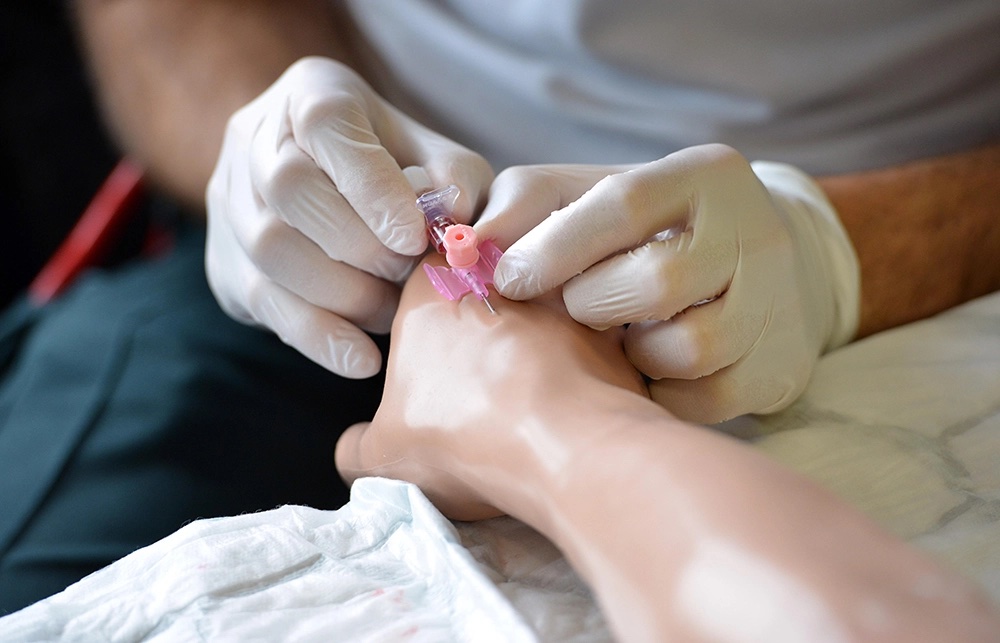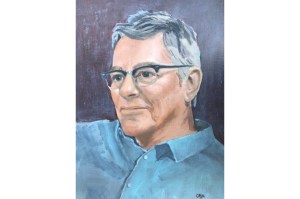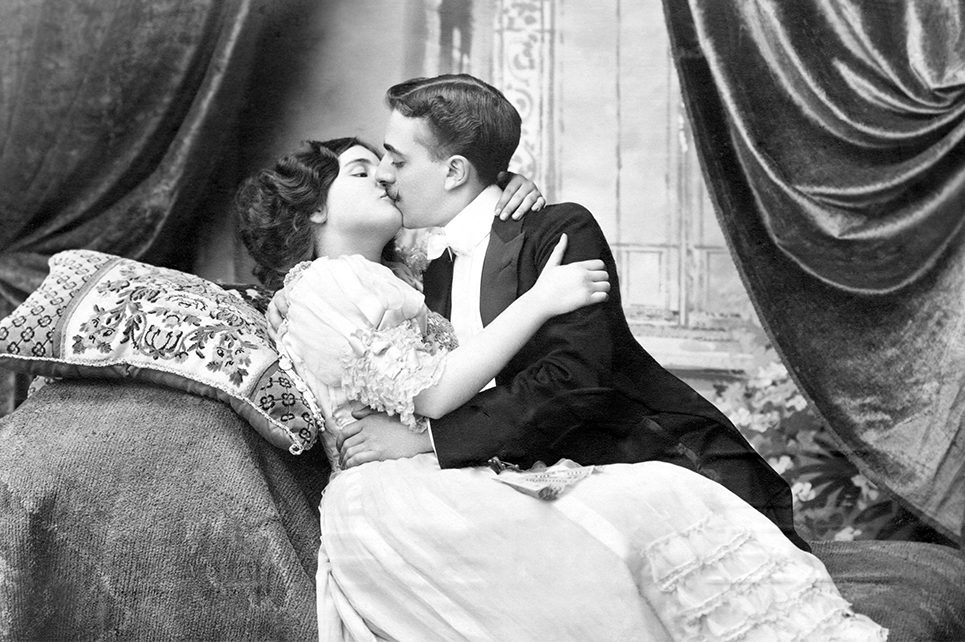I was silently mourning the death of Brigadier General Charles FitzClarence at First Ypres when a young male nurse entered the crowded waiting room and called out my name. I must look fairly decrepit because he offered an arm for me to lean on as he walked me up the aisle and into the CT scanner anteroom. Kind, I thought. He was a dark, solid-looking chap in his early twenties. His uniform was all white: white jacket, white T-shirt, white trousers, white Crocs.
He directed me to a chair beside a medical trolley and suggested I remove my jacket and fleece. Next, a female nurse with an unmistakable air of seniority loped up and asked me if I had any objection to having the IV and contrasting agent fixed into my arm by her student — Mr. White. None whatsoever, I said. She loped away, leaving us to it.
I now recognized that her student was a bundle of nerves. His offering me his arm in the waiting room had felt wonderfully natural and human. It pleasantly combined deference for age with that French notion of equality. But now that he was given the green light to insert what was perhaps his very first IV, our relations were altered. Now I was a diagram in a fervently remembered textbook. His hands shook with apprehension.
Carefully he inspected my inside elbows for a decent vein. Had I a preference? The guinea pig insouciantly shook its head. He selected the right arm and tied a strip of elastic around the bicep, drawing it overly tight. Then he wriggled his trembling hands into disposable gloves and vigorously wiped the site of insertion with an alcohol-soaked wipe.
Now I could see he was losing his nerve. He was putting off the dread moment by wiping and wiping. Then he repeatedly double-tapped the vein with two fingers, something I’ve only ever seen done by heroin addicts in documentaries. I’ve had IVs inserted in the crook of an arm and in the back of a hand many times. My veins are magnificent and proud. Nobody has ever had the slightest problem finding one and shoving in a hollow needle. Certainly, nobody has ever had to tap one to make it stand out. Even money said he was going to muck this up.
More often than not I watch the needle go in. It’s a kind of showing-off. Now I watched the student nurse’s face as he screwed his courage to the sticking place. Impetuously shifting his body from a clumsy position to an even clumsier one, he shut his eyes, bit his upper lip and jerked his head. A sharpness told me the needle was in. His face registered disappointment, however. Looking down, I saw that the needle had gone accurately in one side of the vein but was protruding from the other. “Don’t look!” he said. He pulled it out and set about staunching the blood. As an afterthought he released my bicep from the painful elastic.
The complacency was inadmissible. But there is no level of incompetence with which I cannot identify. And no real harm had been done. And there was always the other arm, which I smartly offered to him.
He fiddled about in the trolley drawer for a second IV and more swabs and alcohol and recommenced his unnecessary rubbing and tapping. “And what do you do for a living?” he asked with forced nonchalance. Perhaps his medical textbook suggested making small talk with the patient at this stage to stop him or her fainting. It was a tranquilizer-dart of a question and deeply disappointing. I told him I was an egg salesman. “Egg?” he said. “Egg,” I said. After that, conversation waned.
Now he had no other choice but to steel himself and plunge. This time I watched the needle go in. My interest was a sporting one. Surely he wouldn’t cock it up a second time? The needle went in right up to the hilt. But an extraordinary amount of blood ran out, as though driven by a propulsive force. It ran over the armrest of the chair, over my trousers, over his trousers and his white Crocs, and it formed a rapidly widening puddle under the chair. “Don’t look!” he commanded. Then he let out an eldritch shriek, demanding immediate assistance from anybody who happened to be within earshot.
A male nurse hastened over. “Oh là là,” he said. He removed the IV and helped clean up — first me, then the furniture. Then he effortlessly put in a new one and went on his way. The student looked at me carefully. He seemed momentarily discouraged. Disenchantment had set in — and on both sides, quite frankly. “Are you OK?” he said. I am still fixated on the literature of the Great War and that wonderful generation who refused to let their disenchantment show except in marching songs. “Never mind, chum!” I said. “Practice makes perfect!”
This article was originally published in The Spectator’s April 2023 World edition.
























